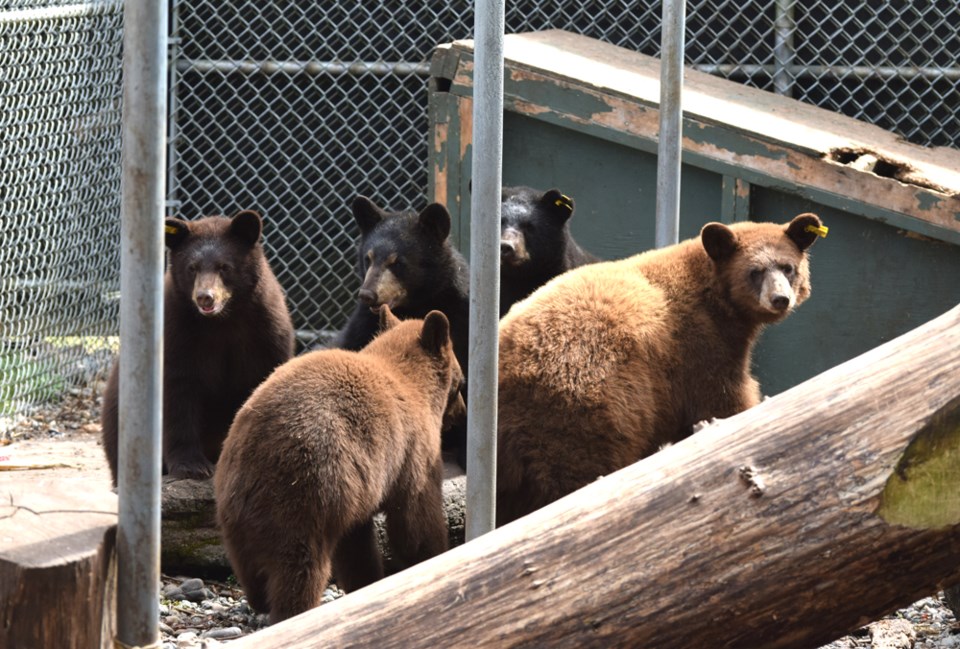It won’t be long now. The bears will be out of their dens, ambling about and looking for a bite to eat.
Inevitably, some of ours will wind up at the Critter Care Wildlife Society, the Langley non-profit that rehabilitates thousands of sick, injured and orphaned animals and gives them a second chance at a proper life in the wild.
Retired journalist and volunteer Nicholas Read spent a year at Critter Care, which he has meticulously documented in his new book, Caring for Critters.
“A lot can happen in a year – and the year I was there, they looked after more animals than they had ever looked after before,” he said.
Read’s book captures the extraordinary dedication of the volunteers who labour away aiding animals, large and small, because they cannot bear the thought of them suffering.
Among his favourites was a baby mole named Edna who had to be fed a single drop of milk every hour, 24 hours per day, for a week, which volunteers were all too happy to do.
“And they didn’t complain. Well, they didn’t complain to me,” Read says. “It was just amazing what people were prepared to do to save those animals.”
Those who were reading the North Shore News that year might already know some of the characters in the book – like Dame, the elderly river otter rescued from the mouth of the Capilano River in need of major dental work. She shocked volunteers when she gave birth to a litter of pups months after being brought in.
Critter Care takes in animals in need of help from all over the province but the North Shore provides a disproportionate number of their bears – about 20 per cent per year.
“No sooner did the last one go, then more came in, and then more and then more. And it never stopped,” Read said. “They had to build a brand-new bear enclosure because they didn't have room enough for all the bears coming in.”
There is no suppressing a smile when taking in stories and photos of “turn-yourself-inside-out cute” animals like Dame and Edna. But Read uses the book to highlight the lack of protection wildlife enjoys in B.C. And he doesn’t shy away from the tension between animal advocates like himself and the B.C. Conservation Officer Service, who are often called to despatch bears once they’ve been deemed “habituated” to humans and non-natural food sources.
“Yes, they shoot their mothers but they also bring the cubs in,” he said.
But, by the time a CO pulls the trigger, a bear has already been done wrong by the community, Read reasons. Common attractants like garbage, tree fruit and bird seed lure bears in with the promise of an easy meal. If we were more diligent at home, there wouldn’t be such a need for volunteers to quite literally clean up after our mess.
“We're lucky in that we live in a place where there are still wild places, and that those places still have wild animals in them,” Read said. “My naive hope is that by making people more aware of the consequences of so many things, that they will be a little more careful and a little more aware and recognize that they're not the only ones living in this world.”
That’s exactly the message Critter Care hopes to see land, said Nathan Wagstaffe, senior wildlife technician.
“We’ve got to learn how to coexist with native wildlife,” he said. “Especially becoming more tolerant of animals. They were here before us, so we need to respect that and allow them also somewhere to live.”
Beyond changing our practices at home, Critter Care is always in need of volunteers, interns and donations because the facility gets no government funding at all.
In that respect, Read is putting his money where is heart is, donating 100 per cent of his royalties from the book sales back to Critter Care.
Caring for Critters is published by Heritage House Publishing Co. It is available directly from Critter Care, and through most local bookstores and online retailers, and sells for about $20. A Kindle edition is also available.



